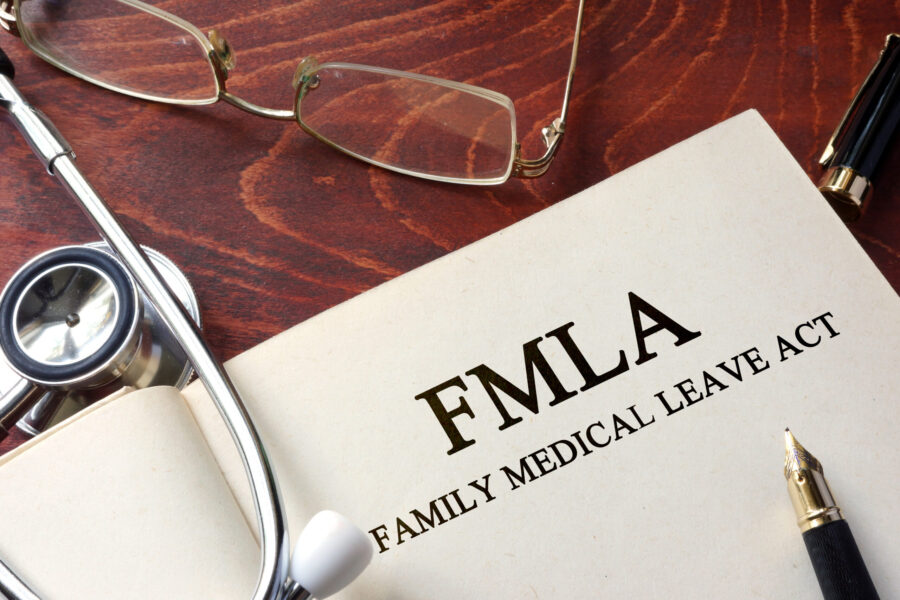What Happens if You Are Fired While on FMLA Leave?

The Family and Medical Leave Act (FMLA) was designed to offer employees an avenue to manage personal or family health situations without jeopardizing their employment. This law provides eligible workers with up to 12 weeks of unpaid leave annually for specific medical or family reasons, such as a serious health condition, childbirth, or caring for an ailing family member. However, for employees on FMLA leave, the question often arises—what happens if you are fired while on this protective leave? This guide explores the legality of such termination, the common scenarios surrounding it, and the options available to you.
Can You Be Fired on FMLA Leave?
The short answer is yes, you can be terminated while on FMLA leave, but only under strictly defined conditions. The FMLA provides legal protections for employees taking approved leave, ensuring they are reinstated to the same or an equivalent position upon their return. However, it does not act as a shield against termination for unrelated, legitimate reasons. Employers cannot fire you in retaliation for exercising your FMLA rights, nor can they terminate your employment simply because you are on leave.
For instance, if an employer can demonstrate that the termination is based on factors unrelated to your FMLA leave, such as workforce downsizing, documented performance issues, or misconduct that occurred before or during your leave, they may be within their legal rights to proceed with termination. However, proving such a decision is free from retaliation or discrimination can become complex.
Common Scenarios Where Termination Occurs During FMLA Leave
There are a variety of circumstances under which employees have found themselves facing termination while on FMLA leave. Understanding these scenarios can shed light on how employers may justify their decisions or where unlawful actions may occur.
One common scenario occurs when an employer claims “just cause” unrelated to the leave itself. For instance, an employee who was underperforming, documented for misconduct, or nearing termination before taking FMLA leave could be terminated on those grounds. Employers are often advised to maintain well-documented evidence to prove the termination stems from lawful reasons unrelated to FMLA.
Another frequent situation involves restructuring or company downsizing. Suppose the position you held is eliminated due to organizational changes during the time you are out on leave. If this can be documented and applies fairly to all similarly situated employees, the termination may stand. However, the employer must be prepared to prove that the same action would have been taken even if FMLA leave had not been a factor.
Unfortunately, not all terminations are lawful under FMLA. Retaliatory actions represent a significant risk for employees. If an employer uses your FMLA leave as a reason to question your commitment to the company or penalizes you for exercising your rights, this would likely be a violation of federal law. Employers may subtly discriminate, disguising it under other reasons, which makes these cases even more complex.
Employee Rights when Terminated While on FMLA Leave
If you believe you have been wrongfully terminated while on FMLA leave, it is critical to know your rights and options for recourse. The FMLA strictly prohibits retaliation or discrimination against employees who request or take covered leave. Employers must adhere to these regulations and cannot unfairly target employees for their decision to utilize FMLA coverage.
Your rights under FMLA include reinstatement to your position or an equivalent role upon your return from leave. If you believe these rights have been violated, you may choose to file a complaint with the U.S. Department of Labor’s Wage and Hour Division. Alternatively, you can pursue litigation against the employer for damages.
It is important to maintain thorough documentation of your leave, communication with your employer, and any evidence of potential discrimination or wrongdoing. Examples of documentation may include email correspondence, records of performance reviews, or notes from meetings. Having this information will strengthen your case if you decide to take legal action.
Seeking legal counsel is another essential step. Federal employment law can be highly nuanced and navigating it independently may prove challenging. Consulting an experienced employment lawyer can help you determine whether your rights have been violated, and they can guide you on the best course of action moving forward.
How to Proceed if You Suspect Wrongful Termination
If you suspect that your firing was unlawful or discriminatory, immediate action is important. First, communicate with your employer to clarify the rationale behind your termination. Request all relevant documentation regarding your performance or the organizational decisions that led to the termination.
Second, file a complaint with the Department of Labor. An investigation conducted by this federal agency may clarify whether your employer acted unlawfully.
Third, consult with an experienced employment lawyer. A lawyer specializing in FMLA and workplace rights will help you assess whether you have a valid case and assist in filing a wrongful termination claim or pursuing compensation for damages, such as lost wages and emotional distress.
Employment disputes can be complex and time-sensitive, making it crucial to act quickly and with the right guidance.
Protect Your Rights Today
Termination while on FMLA leave can create confusion, stress, and financial insecurity. Understanding your rights under the Family and Medical Leave Act and taking proactive steps can help protect you against unwarranted or retaliatory actions by your employer. It is important to remember that you are not alone—resources, legal options, and professional counsel are available to support you during this process.
If you suspect that your termination violated FMLA protections, consider speaking with an experienced federal employment lawyer. The Vaughn Law Firm has assisted countless individuals in Georgia with wrongful termination, retaliation, and other workplace disputes. Contact us at 877-212-8089 for a consultation to discuss your situation and learn how we can advocate for your rights.




